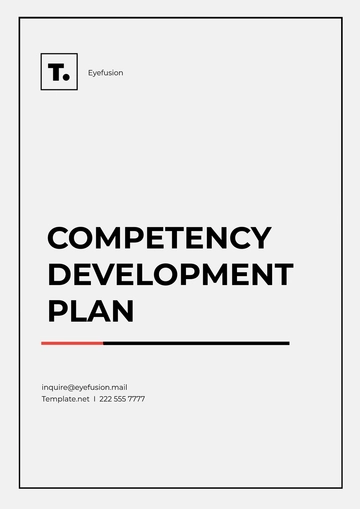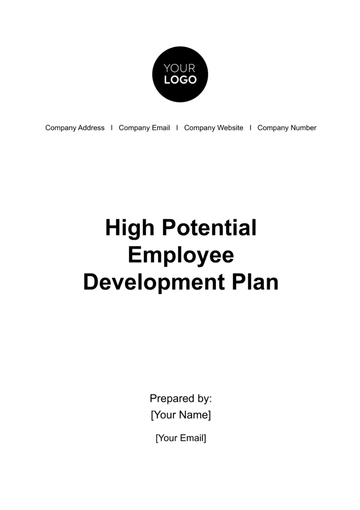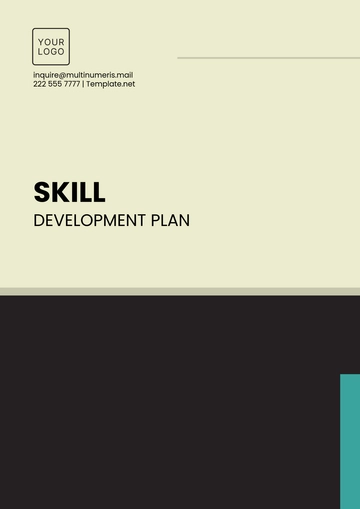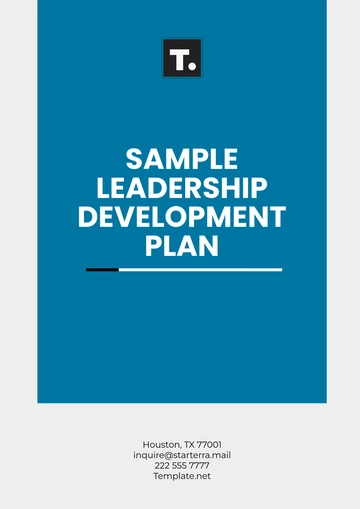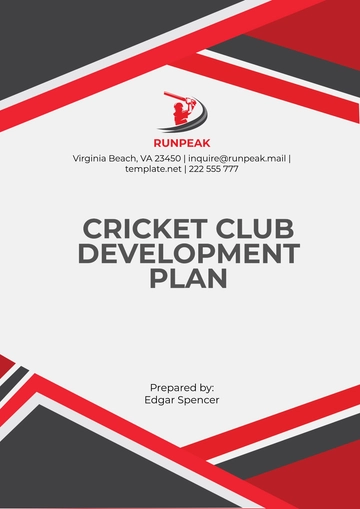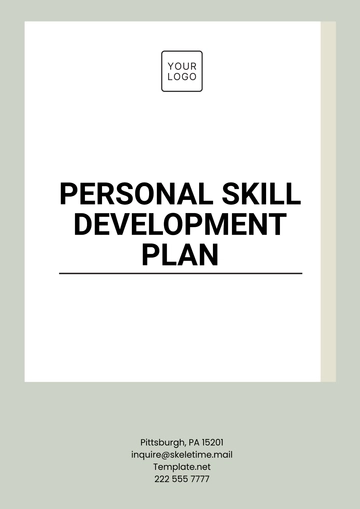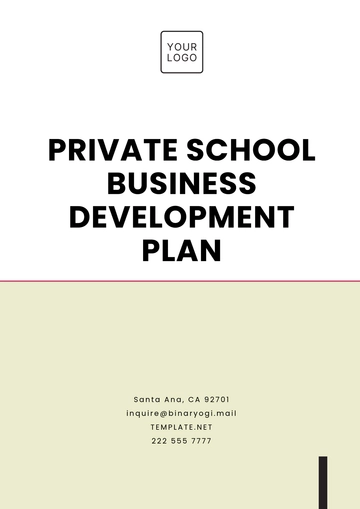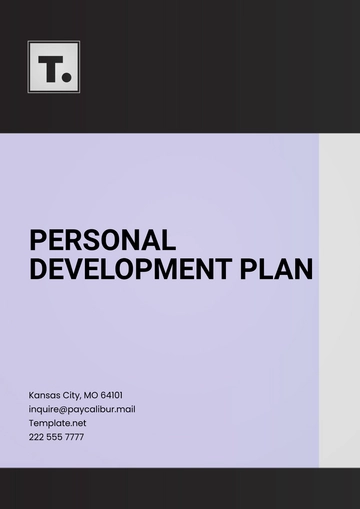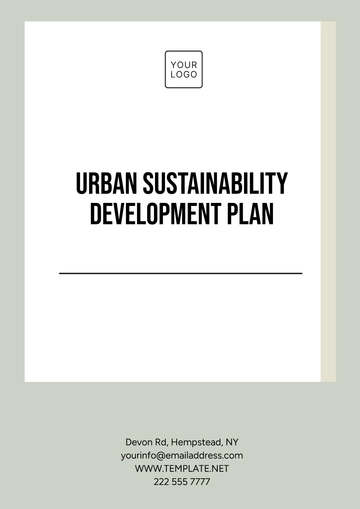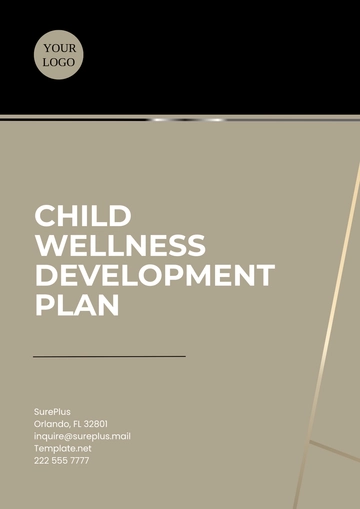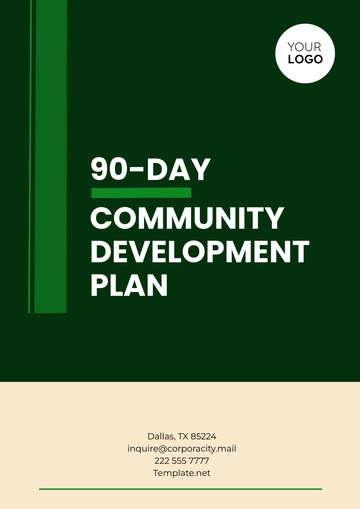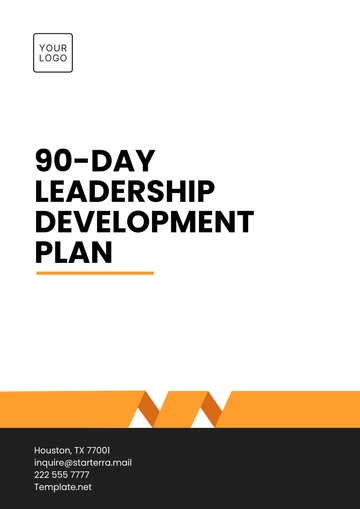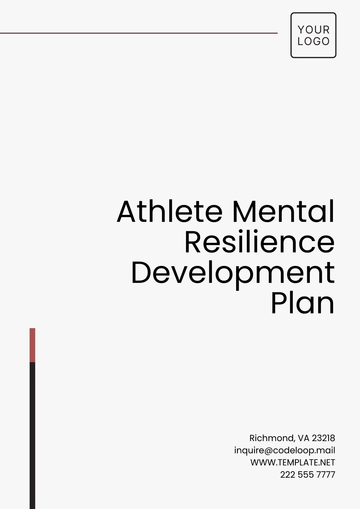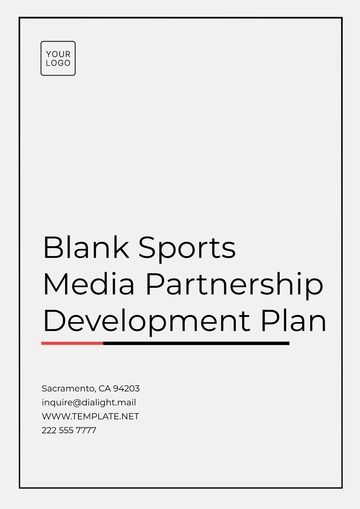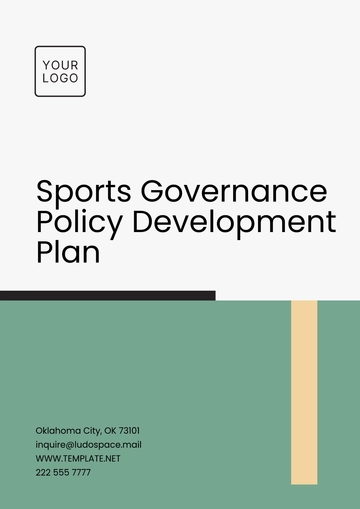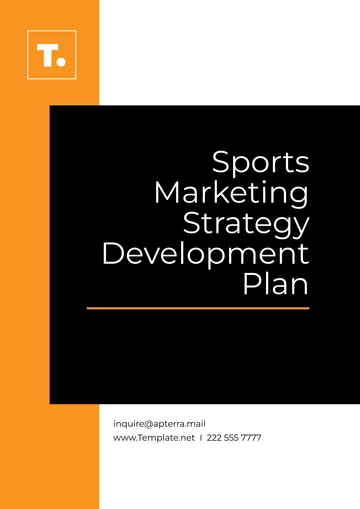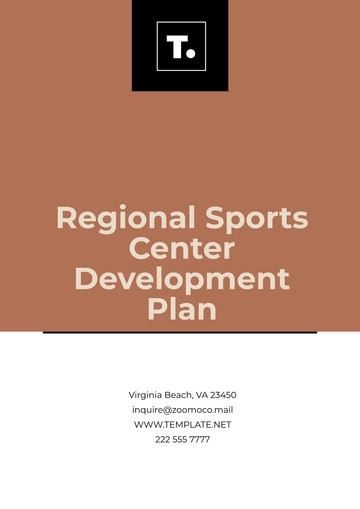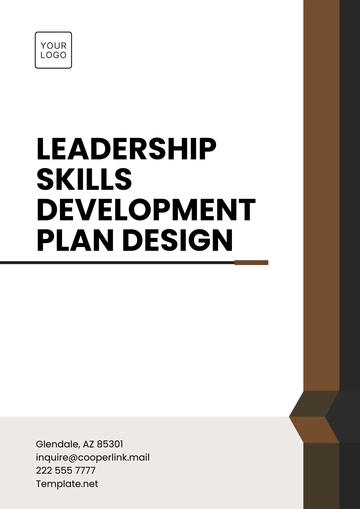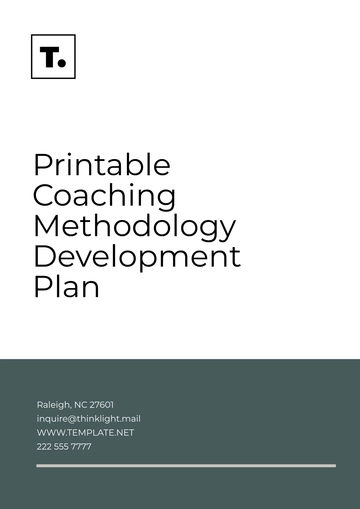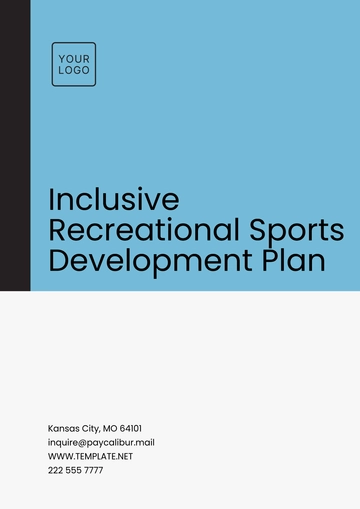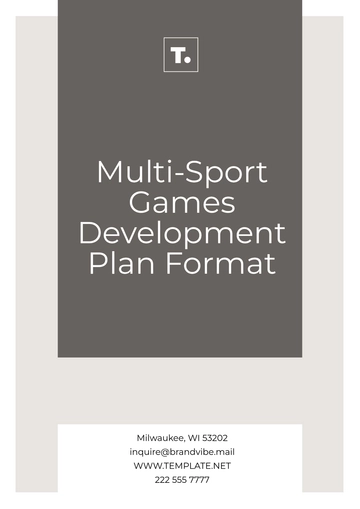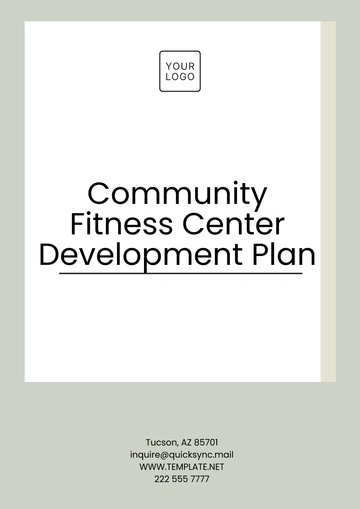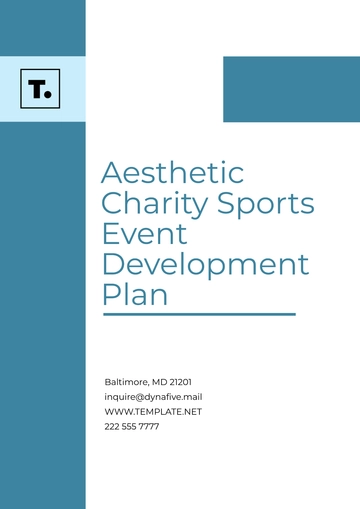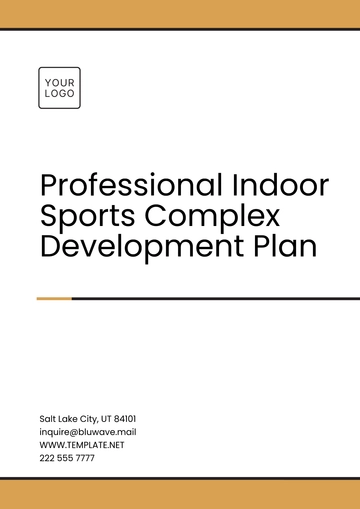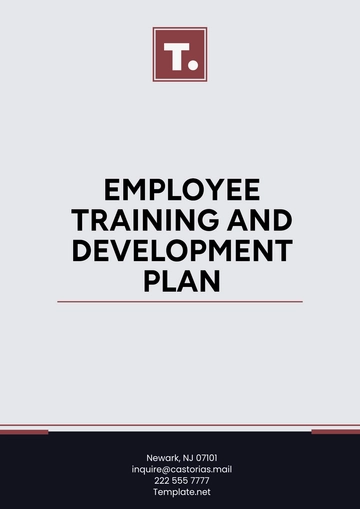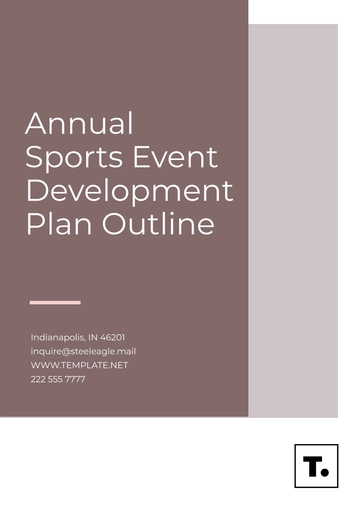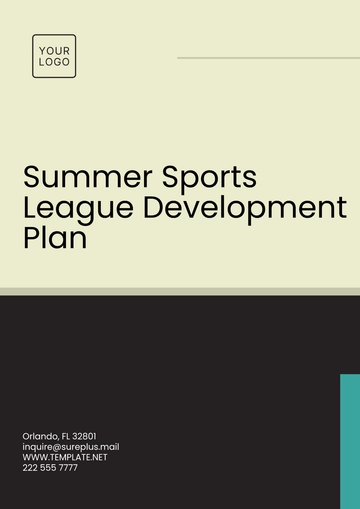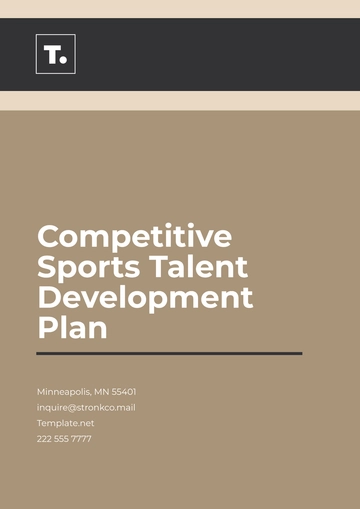Free Travel Agency Development Plan
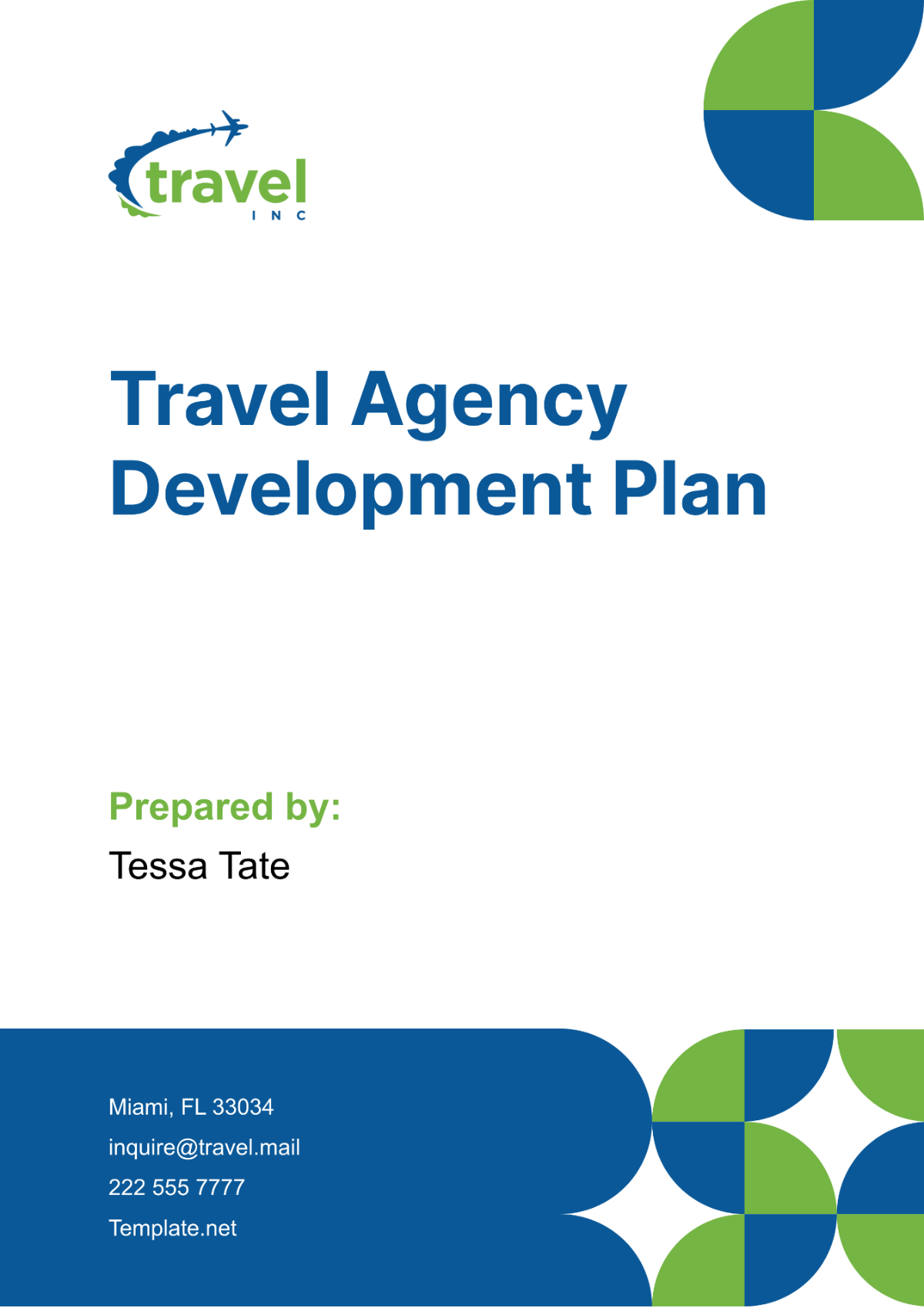
I. Executive Summary
This Development Plan of [Your Company Name] is a strategic blueprint that outlines our vision to redefine the travel experience through innovation, personalization, and superior customer service. This plan is designed to be flexible, adapting to the ever-changing dynamics of the travel industry, and setting the course for our journey towards becoming a market leader.
Our development plan revolves around the creation of unique travel experiences, the establishment of strategic alliances, and the integration of advanced technologies. These initiatives are aimed at not only enhancing the customer experience but also improving our operational efficiency. By focusing on these areas, we aim to set [Your Company Name] apart in the competitive landscape of the travel industry.
The total budget allocated for this development plan is $165,000. This comprehensive budget is meticulously distributed across various key areas of the project, ensuring that we have the necessary resources to achieve our objectives. We anticipate a significant return on investment, given the potential for increased customer loyalty and market share expansion.
II. Introduction
A. Objectives
The primary objectives of this plan are to:
Increase Market Share: Increase market share by 15% within the next 12 months. This will be achieved through a combination of marketing efforts, enhanced service offerings, and strategic partnerships.
Develop Strategic Partnerships: Develop strategic partnerships with at least five major airlines and hotel chains. These partnerships will enhance our service offerings and provide our clients with more options and better value.
Launch New Travel Packages: Launch three new niche travel packages, focusing on eco-tourism, adventure travel, and luxury experiences. These packages will cater to emerging trends and customer preferences, attracting a wider client base.
Enhance Digital Marketing: Enhance digital marketing efforts to boost online bookings by 20%. This will involve optimizing our website, leveraging social media platforms, and implementing targeted advertising campaigns.
Improve Customer Satisfaction: Improve customer satisfaction rates by implementing a new feedback system. This system will allow us to gather valuable feedback from our clients and make necessary improvements to our services.
B. Strategic Approach
To achieve our objectives, our strategy involves enhancing service offerings, streamlining operations, investing in marketing and sales strategies, and leveraging technology to improve customer experience. A sustainable growth model that adapts to changing market conditions is essential for long-term success.
Service Enhancement: We will continuously improve our service offerings to meet the evolving needs of our clients. This will involve regularly reviewing our travel packages and making necessary adjustments based on client feedback and market trends.
Operational Streamlining: We will streamline our operations to improve efficiency and customer service. This will involve implementing new operational protocols, upgrading our IT infrastructure, and providing training to our staff.
Marketing and Sales Investment: We will invest in marketing and sales strategies to attract new clients and increase sales. This will involve implementing a comprehensive marketing strategy that includes digital marketing, influencer partnerships, and targeted advertising.
Technology Leveraging: We will leverage technology to improve the customer experience. This will involve implementing a new booking system, upgrading our website, and utilizing customer relationship management (CRM) software.
III. Marketing Strategy
Our marketing strategy focuses on digital transformation and global branding. Responsibilities will include the enhancement of the agency’s online presence, use of social media marketing, influencer partnerships, and targeted advertising. Engaging content and lucrative deals are key to attracting new customers.
Key Area | Strategy |
|---|---|
Online Presence | Enhance the agency’s online presence through website optimization and SEO. |
Social Media Marketing | Utilize social media platforms to engage with customers and promote services. |
Influencer Partnerships | Partner with travel influencers to reach a larger audience. |
Targeted Advertising | Implement targeted advertising campaigns to attract potential customers. |
A. Online Presence
Our online presence is the first point of contact for many of our customers. Therefore, it is crucial to ensure that our website is user-friendly, informative, and optimized for search engines.
Website Optimization: We will optimize our website to ensure it is user-friendly, visually appealing, and easy to navigate. This will involve improving the website design, enhancing the content, and ensuring the website is mobile-friendly.
Search Engine Optimization (SEO): We will implement SEO strategies to improve our website’s ranking on search engine results pages. This will involve keyword optimization, link building, and improving the website’s loading speed.
Content Creation: We will create engaging and informative content for our website. This will include blog posts, travel guides, and customer testimonials.
B. Social Media Marketing
Social media is a powerful tool for engaging with customers and promoting our services. We will leverage various social media platforms to reach our target audience.
Social Media Engagement: We will engage with our audience on social media by posting regular updates, responding to comments, and participating in relevant discussions.
Social Media Advertising: We will implement targeted advertising campaigns on social media platforms to reach potential customers. This will involve creating engaging ads and targeting them to our desired audience based on their interests, demographics, and online behavior.
Influencer Partnerships: We will partner with travel influencers who can promote our services to their followers. This will involve identifying relevant influencers, reaching out to them for partnerships, and collaborating with them on promotional campaigns.
C. Influencer Partnerships
Influencer partnerships can help us reach a larger audience and build trust with potential customers. We will identify and collaborate with influencers who align with our branding.
Influencer Identification: We will identify influencers who have a significant following in the travel sector and align with our brand values. This will involve researching influencers on various social media platforms and analyzing their content, audience, and engagement rates.
Partnership Outreach: Once we have identified potential influencers, we will reach out to them to discuss partnership opportunities. This will involve sending personalized outreach emails or messages, explaining our proposal, and discussing potential collaboration terms.
Campaign Collaboration: We will collaborate with influencers on promotional campaigns. This could involve the influencer featuring our services in their content, hosting giveaways, or offering special discounts to their followers.
D. Targeted Advertising
Targeted advertising allows us to reach potential customers who are likely to be interested in our services. We will implement targeted advertising campaigns on various platforms to attract these customers.
Ad Creation: We will create engaging and persuasive ads that highlight the unique features and benefits of our services. This will involve working with our creative team to develop compelling ad copy and visuals.
Ad Targeting: We will target our ads to reach our desired audience. This will involve setting up targeting parameters based on our audience’s demographics, interests, and online behavior.
Ad Optimization: We will continuously monitor and optimize our ad performance. This will involve analyzing ad metrics, testing different ad variations, and making necessary adjustments to improve ad performance.
IV. Operations Plan
This plan details the operational steps necessary to enhance efficiency and service delivery within [Your Company Name]. It includes streamlining ticket booking processes, implementing efficient customer service protocols, and upgrading our IT infrastructure to support new services.
Key Area | Strategy |
|---|---|
Ticket Booking Process | Streamline the ticket booking process to make it more efficient and user-friendly. |
Customer Service Protocols | Implement efficient customer service protocols to improve customer satisfaction. |
IT Infrastructure | Upgrade our IT infrastructure to support new services and improve operational efficiency. |
A. Ticket Booking Process
The ticket booking process is a crucial part of our operations. We aim to make this process as efficient and user-friendly as possible.
Booking System Upgrade: We will upgrade our booking system to make it more efficient and user-friendly. This will involve implementing new features, improving system performance, and enhancing user interface design.
Booking Process Streamlining: We will streamline our booking process to make it easier for clients to book our services. This will involve simplifying the booking steps, providing clear instructions, and offering multiple payment options.
Booking Confirmation and Follow-Up: We will implement a system for booking confirmation and follow-up. This will involve sending immediate booking confirmation emails, providing clear information about the booking, and following up with clients before their trip.
B. Customer Service Protocols
Customer service is a key aspect of our operations. We aim to provide excellent customer service to ensure client satisfaction.
Customer Service Training: We will provide customer service training to our staff. This will involve training our staff on how to handle customer inquiries, resolve issues, and provide excellent service.
Customer Feedback System: We will implement a customer feedback system to gather valuable feedback from our clients. This will involve setting up a system for clients to rate and review our services, and regularly reviewing this feedback to make improvements.
Customer Relationship Management (CRM) System: We will implement a CRM system to manage our interactions with clients. This will involve setting up a system to track client interactions, manage client information, and analyze client behavior.
C. IT Infrastructure
Our IT infrastructure supports our operations and services. We aim to upgrade our IT infrastructure to support new services and improve operational efficiency.
System Upgrade: We will upgrade our systems to support new services. This will involve implementing new software, upgrading existing systems, and ensuring system compatibility.
Data Security: We will implement robust data security measures to protect client information. This will involve setting up secure servers, implementing data encryption, and regularly updating our security protocols.
System Maintenance and Support: We will provide regular system maintenance and support to ensure our systems are running smoothly. This will involve regularly checking system performance, resolving technical issues, and providing user support.
V. Timeline
The timeline is a critical component of the plan by [Your Company Name]. It provides a clear roadmap for our team, outlining the key milestones we aim to achieve and the estimated duration for each. The following table presents a detailed breakdown of these milestones and their respective timelines:
Key Milestone | Duration |
|---|---|
Strategic Partnerships Formation | 3 months |
Launch of New Travel Packages | 2 months |
Website Optimization | 1 month |
Marketing Campaign Launch | 2 months |
A. Strategic Partnerships Formation
The formation of strategic partnerships is a key milestone in our timeline. We aim to form partnerships with at least five major airlines and hotel chains within the first three months of the project.
Partnership Identification: We will identify potential partners who align with our brand values and can provide value to our clients. This will involve researching airlines and hotel chains, analyzing their offerings, and assessing their reputation.
Partnership Outreach: Once we have identified potential partners, we will reach out to them to discuss partnership opportunities. This will involve sending personalized outreach emails or messages, explaining our proposal, and discussing potential collaboration terms.
Partnership Agreement: We will negotiate and finalize partnership agreements with the selected partners. This will involve discussing the terms of the partnership, signing the agreement, and planning the partnership launch.
B. Launch of New Travel Packages
The launch of new travel packages is another key milestone in our timeline. We aim to launch three new niche travel packages within the first five months of the project.
Package Development: We will develop new travel packages that cater to emerging trends and customer preferences. This will involve researching travel trends, designing package itineraries, and pricing the packages.
Package Promotion: We will promote our new travel packages to attract clients. This will involve creating promotional materials, advertising the packages on various platforms, and hosting launch events.
Package Launch: We will launch our new travel packages and start accepting bookings. This will involve updating our website and booking system, training our staff on the new packages, and providing customer support.
C. Website Optimization
Website optimization is a crucial milestone in our timeline. We aim to optimize our website within the first six months of the project.
Website Audit: We will conduct a website audit to identify areas for improvement. This will involve reviewing the website design, content, and performance, and gathering feedback from users.
Website Redesign: We will redesign our website to make it more user-friendly and visually appealing. This will involve improving the website layout, enhancing the visuals, and simplifying the navigation.
Website Launch: We will launch our redesigned website and monitor its performance. This will involve testing the website, fixing any issues, and gathering feedback from users.
D. Marketing Campaign Launch
The launch of our marketing campaign is a key milestone in our timeline. We aim to launch our marketing campaign within the first eight months of the project.
Campaign Planning: We will plan our marketing campaign to promote our services and attract new clients. This will involve setting campaign objectives, identifying target audiences, and developing campaign strategies.
Campaign Creation: We will create engaging and persuasive campaign materials. This will involve developing ad copy and visuals, creating social media content, and designing email marketing campaigns.
Campaign Launch: We will launch our marketing campaign and monitor its performance. This will involve publishing our campaign materials, tracking campaign metrics, and making necessary adjustments.
VI. Budget
The budget is a crucial part of the Development Plan by [Your Company Name]. It outlines how we intend to distribute our resources across various aspects of the project. The following chart and table present the budget allocation for each key area of the project:
Category | Amount |
|---|---|
Marketing and Advertising | $50,000 |
Partnership and Alliances | $30,000 |
Technology Upgrades | $40,000 |
Staff Training | $20,000 |
New Package Development | $25,000 |
Total | $165,000 |
A. Marketing and Advertising
The largest portion of our budget, $50,000, is allocated to marketing and advertising. These funds will be used to implement our marketing strategy, which includes digital marketing, influencer partnerships, and targeted advertising.
Digital Marketing: A significant portion of our marketing budget will be allocated to digital marketing. This will involve investing in SEO, social media marketing, email marketing, and online advertising.
Influencer Partnerships: We will allocate funds to form partnerships with travel influencers. This will involve paying influencers for promotional posts or collaborations.
Targeted Advertising: We will allocate funds to implement targeted advertising campaigns. This will involve creating and placing ads on various platforms to reach our target audience.
B. Partnership and Alliances
We have allocated $30,000 to form strategic partnerships and alliances. These funds will be used to form partnerships with airlines and hotel chains, which will enhance our service offerings and provide value to our clients.
Partnership Formation: A significant portion of our partnership budget will be allocated to forming partnerships. This will involve negotiating partnership terms, signing partnership agreements, and launching the partnerships.
Alliance Building: We will allocate funds to build alliances with other businesses in the travel industry. This will involve attending networking events, forming collaborations, and promoting our alliances.
C. Technology Upgrades
We have allocated $40,000 to technology upgrades. These funds will be used to upgrade our IT infrastructure, implement a new booking system, and enhance our website.
IT Infrastructure Upgrade: A significant portion of our technology budget will be allocated to upgrading our IT infrastructure. This will involve purchasing new hardware, implementing new software, and ensuring system compatibility.
Booking System Implementation: We will allocate funds to implement a new booking system. This will involve purchasing the system, customizing it to meet our needs, and training our staff to use it.
Website Enhancement: We will allocate funds to enhance our website. This will involve improving the website design, enhancing the content, and optimizing the website for search engines.
D. Staff Training
We have allocated $20,000 to staff training. These funds will be used to provide our staff with the skills and knowledge they need to effectively perform their roles.
Skill Development: A significant portion of our training budget will be allocated to skill development. This will involve providing our staff with training on customer service, sales techniques, and industry knowledge.
Product Knowledge: We will allocate funds to train our staff on our travel packages. This will involve providing detailed information on the features and benefits of our packages, and training our staff on how to effectively sell these packages.
System Training: We will allocate funds to train our staff on our new booking system and other technology tools. This will involve providing hands-on training and ongoing support to ensure our staff can effectively use these tools.
E. New Package Development
We have allocated $25,000 to the development of new travel packages. These funds will be used to research and develop new packages that cater to emerging trends and customer preferences.
Market Research: A significant portion of our package development budget will be allocated to market research. This will involve researching travel trends, customer preferences, and competitor offerings.
Package Design: We will allocate funds to design our new travel packages. This will involve selecting destinations, planning itineraries, and pricing the packages.
Package Promotion: We will allocate funds to promote our new travel packages. This will involve creating promotional materials, advertising the packages on various platforms, and hosting launch events.
VII. Risk Management
Risk management is a critical aspect of the plan. It involves identifying potential risks that could impact our project and developing strategies to mitigate these risks.
A. Market Fluctuation
Market fluctuation is a common risk in the travel industry.
Seasonal Variations: The travel industry is highly seasonal, with demand fluctuating throughout the year. We will develop diverse travel packages that cater to different seasons to ensure steady business all year round.
Economic Conditions: Economic conditions can significantly impact people’s travel plans. We will offer a range of packages at different price points to cater to clients with varying budgets.
Industry Trends: Trends in the travel industry can affect the popularity of certain destinations or types of travel. We will stay abreast of industry trends to ensure our offerings remain relevant and attractive.
Competitor Actions: Actions by competitors, such as the launch of new packages or promotional offers, can affect our market share. We will closely monitor our competitors and adjust our strategies as needed.
Currency Exchange Rates: Changes in currency exchange rates can affect the cost of international travel packages. We will consider these fluctuations when pricing our packages and adjust as necessary.
B. Geopolitical Scenarios
Geopolitical scenarios can pose significant risks to the travel industry.
Political Instability: Political instability in a destination can deter travelers. We will monitor the political situation in our destinations and adjust our offerings as needed.
Travel Advisories: Travel advisories issued by governments can affect demand for certain destinations. We will stay informed about these advisories and communicate any relevant information to our clients.
Visa Policies: Changes in visa policies can affect the ease of travel to certain destinations. We will keep up-to-date with these changes and advise our clients accordingly.
International Relations: Relations between countries can impact travel. We will monitor international relations and consider this when choosing our travel destinations.
C. Natural Disasters
Natural disasters are unpredictable risks that can have a significant impact on travel plans.
Weather Conditions: Severe weather conditions can disrupt travel plans. We will monitor weather forecasts and advise our clients on the best times to travel to avoid severe weather.
Natural Disasters: Natural disasters such as earthquakes, hurricanes, or floods can make certain destinations unsafe. We will stay informed about potential natural disasters and adjust our travel packages as necessary.
Pandemics: Health crises like pandemics can halt travel completely. We will stay informed about global health situations and advise our clients accordingly.
Environmental Changes: Environmental changes, such as rising sea levels or deforestation, can affect the attractiveness of certain destinations. We will consider these factors when selecting destinations for our travel packages.
Wildlife Encounters: Encounters with wildlife can pose risks to travelers. We will provide our clients with information on how to interact safely with wildlife during their travels.
D. Technological Risks
Technological risks pertain to the use of technology in our operations.
Data Security: As we handle sensitive client information, data security is a major concern. We will implement robust security measures to protect our clients’ data.
System Downtime: Downtime of our booking system or website can affect our operations and customer satisfaction. We will ensure our systems are reliable and have contingency plans in place for any downtime.
Technology Adoption: The successful adoption of new technologies, such as a new CRM system, is crucial for improving our operations. We will provide adequate training to our staff to ensure smooth adoption.
Online Reputation: Negative reviews or comments online can affect our reputation. We will actively manage our online reputation by responding to reviews and addressing any issues raised.
Digital Marketing Performance: Our digital marketing efforts need to effectively attract and convert clients. We will regularly review and optimize our digital marketing performance.
Regulatory Compliance: We need to comply with regulations related to online business, such as data protection laws. We will stay informed about these regulations and ensure our practices are compliant.
VIII. Conclusion
This Development Plan is a robust and forward-thinking strategy that aims to transform our agency into a leading player in the travel industry. By focusing on customer satisfaction, operational efficiency, and strategic growth, we are confident that we can navigate the complexities of the travel industry and establish a strong market presence.
The impact of this development plan will be transformative, influencing every facet of our operations and potentially reshaping the future trajectory of our agency. As we embark on this exciting journey, we are aware of the challenges that lie ahead. However, with strategic planning, diligent execution, and a relentless commitment to excellence, we are confident that we can overcome these challenges and set [Your Company Name] on a path to sustained growth and success.
As we move forward, we remain committed to our mission of delivering exceptional travel experiences. We believe that our focus on innovation, personalization, and superior customer service will set us apart in the competitive travel industry. We look forward to sharing our progress with you and thank you for your continued support and trust in [Your Company Name].
- 100% Customizable, free editor
- Access 1 Million+ Templates, photo’s & graphics
- Download or share as a template
- Click and replace photos, graphics, text, backgrounds
- Resize, crop, AI write & more
- Access advanced editor
Drive growth and innovation with our customizable and editable Travel Agency Development Plan Template! This strategic document from Template.net provides a roadmap for implementing initiatives to expand and evolve your agency's offerings and capabilities. Streamline the process using our AI Editor Tool to customize the development plan to your needs!
